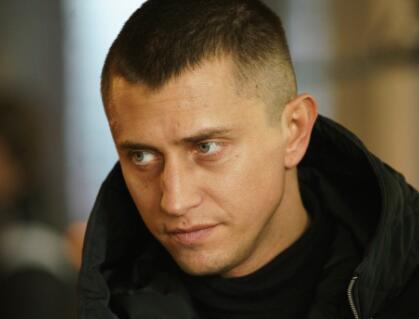Russian culture is known for its rich history and traditions, and one aspect that reflects this heritage is the naming conventions. Russian male names are often unique, meaningful, and deeply rooted in the country's history and literature. In this article, we will explore more than 100 popular Russian male names, their origins, and their significance in Russian society.

I. Origins of Russian Male Names:
Russian names have evolved over centuries, drawing influences from Slavic, Nordic, Greek, and Christian traditions. Understanding the origins of these names helps to appreciate their cultural significance.
1. Slavic Names:
Slavic names constitute a significant portion of Russian male names. Examples include Ivan (meaning "God is gracious"), Boris ("fighter" or "wolf"), and Mikhail ("who is like God?").
2. Norse Names:
Due to Viking influence, some Russian names have Nordic origins. For instance, the name Rurik means "famous ruler," while Svyatoslav signifies "glorious fame."
3. Christian Names:
Christianity played a vital role in shaping Russian naming traditions. Names like Alexander ("defender of mankind"), Dmitry ("devoted to God"), and Nikolay ("victory of the people") are common examples.
II. Popular Russian Male Names:
Now, let's delve into a comprehensive list of popular Russian male names, highlighting their meanings and cultural significance.
1. Alexander: Derived from the Greek name Alexandros, it means "defender of mankind." This name is associated with numerous Russian historical figures and is considered noble and powerful.
2. Dmitry: A popular name meaning "devoted to God." It has been borne by several Russian rulers, including Dmitry Donskoy, a national hero.
3. Ivan: Derived from the Hebrew name Yohanan, it means "God is gracious." Ivan the Terrible, one of Russia's most famous rulers, contributed to the popularity of this name.
4. Nikolay: Derived from the Greek name Nikolaos, it means "victory of the people." This name is associated with Saint Nicholas, the patron saint of Russia.
5. Vladimir: Meaning "ruler of peace" or "famous ruler," Vladimir is a name with strong historical significance. It has been borne by several Russian rulers, including Vladimir Lenin.
6. Aleksey: Derived from the Greek name Alexios, it means "defender" or "helper." Aleksey Romanov, the last Tsar of Russia, was a notable bearer of this name.
7. Igor: This ancient Slavic name means "warrior" or "heroic." Igor Stravinsky, the renowned composer, brought fame to this name.
III. Cultural Significance of Russian Male Names:
Russian male names often carry cultural and historical significance, reflecting the values and traditions of the Russian people.
1. Family Heritage:
Russian names are often passed down through generations, symbolizing family heritage and continuity. This practice strengthens family bonds and preserves cultural identity.
2. Literary Connections:
Many Russian male names have been immortalized in literature. Writers like Fyodor Dostoevsky, Leo Tolstoy, and Anton Chekhov often used symbolic names to depict characters' traits and personalities.
3. National Pride:
Russian male names have played significant roles in shaping the country's history and national identity. They evoke a sense of pride and patriotism among the Russian people.
Russian male names are more than just labels; they carry the weight of history, culture, and tradition. From Slavic origins to Christian influences, these names reflect the diversity and richness of Russian heritage. Understanding the meanings and significance behind these names provides valuable insights into Russian culture and society. Whether you are interested in naming your child or simply exploring different cultures, Russian male names offer a fascinating journey into the heart of Russia's past and present.






